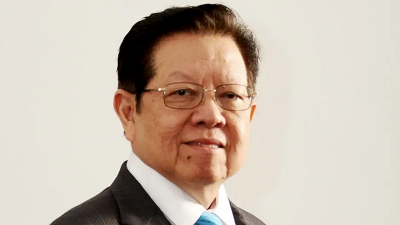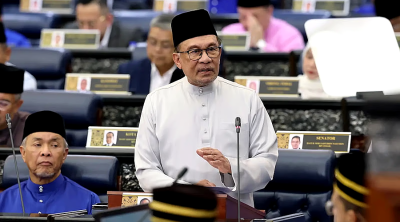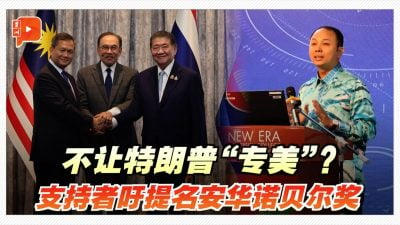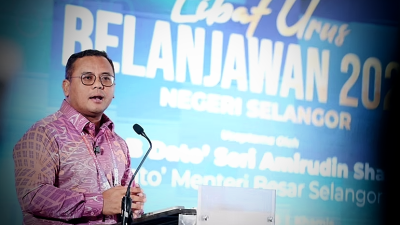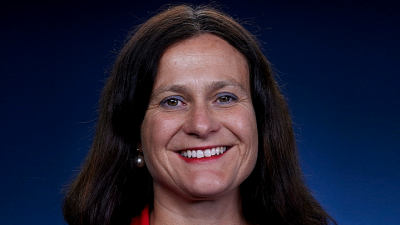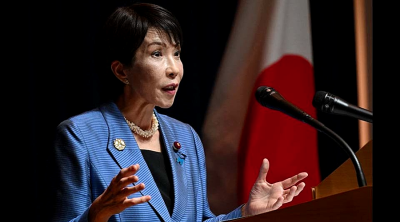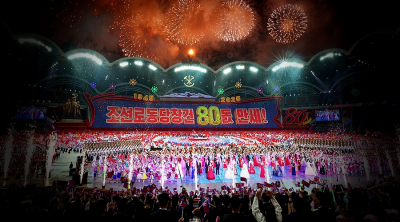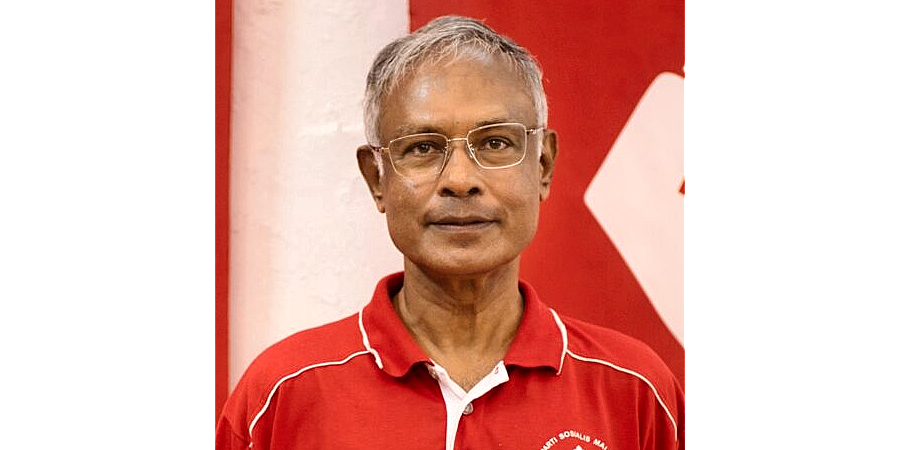
DSAI (Datuk Sri Anwar Ibrahim) repeatedly announces his intentions to create an inclusive society where the poor will be protected and helped.
During his latest Budget Speech in October, he said the government would not be bringing back the GST (Goods and Services Tax) because the incomes of the bottom half of the population are still too low.
He took pains to explain how the targeting of petrol subsidies would not affect the bottom 85 per cent of the population, and stressed that the super-rich should not expect subsidies.
He also increased the STR (Sumbangan Tunai Rahmah) allocation – the cash transfer programme which benefits some 10 million people nationwide – to RM13 billion for 2025.
However, despite these intentions, the economic problems faced by the people – both the B40 and M40 – have not decreased significantly in the past two years.
■ Income is still low for majority of Malaysians
The median monthly salary is approximately RM2,8001. This means that 50 per cent of workers in Malaysia (the total number of Malaysian workers is close to 10 million) get salaries lower than RM2,800 per month.
■ Home prices and rental costs have risen dramatically
■ Many families carry a high debt burden consuming 20 to 40 per cent of their monthly incomes
■ Health services are stressed
Government hospitals are overcrowded and there are not enough specialist doctors and investigative tools.
Waiting lists are long.
■ Young people face the problem of unemployment (8 to10 per cent of those aged 25-35 years)2 and under-employment.
Many are forced to take up jobs not corresponding to their education/training, and with low wages.
So, the economic pressures faced by ordinary people have not subsided following the victory of the Madani government. But, is this DSAI’s fault?
The rich are getting richer
The economic system that has developed over the past 50 years is very one-sided. It benefits the richest people in the world!
This is clearly seen in Malaysia where the Gross Domestic Product (GDP) increased 24-fold in real terms3 between 1970 and 2020, while the median wage of workers only increased 2-fold.
Over the same period, total government revenue dropped from 30 per cent of GDP in the 1980s to 15 per cent today.
This means that much of the increase in country’s wealth has accrued to the elite at the top of the wealth pyramid.
If the total government revenue had remained at 30 per cent of GDP, the government would have been able to allocate sufficient funds for government hospitals to strengthen health services, launch a pension scheme for the elderly, provide public transport throughout the country at reasonable prices and so on.
But unfortunately, a large part of the increase in the national income has been channelled into the bank accounts of the biggest corporations and billionaires – both inside and outside the country.
Neoliberal approach has replaced socio-democratic approach
For 30 years after the Second World War from 1945 to 1975, the socio-democratic approach shaped government policies around the world.
Challenges from the communist bloc – Russia, Warsaw Pact countries, China, Vietnam and several other countries – scared the elite in the West.
Western elites are worried that their workers would also revolt and align with the global leftist movement. Therefore, the western elite were prepared to accede to the demands from trade unions for reasonable wages, unemployment benefits, free/low-cost health services, elderly pensions and so on.
In Malaysia, we witnessed the launch of the Felda scheme, the supply of water and electric power to almost all rural areas, the construction of rural clinic such that more than 90 per cent of the population was within 5 km of a health facility, free universal education, the launch of schemes such as EPF and SOCSO and so on during this social-democratic period.
But after the implosion of the Warsaw Pact in the late 1980s, and the transition of the Chinese and Vietnamese countries to an economy based on capitalism, the fear of the western elites abated, and they began showing their true colours.
Neoliberal ideology was encouraged in universities, thinktanks, and in institutions such as the World Bank and IMF.
The following concepts were promoted worldwide:
■ The government is the main obstacle to the development of the economies of countries. The government should be reduced in size, and the regulation of corporations relaxed. The market must be permitted to do its “magic”.
■ Taxes and other restrictions on corporations should be minimised so that corporations can play their role in driving GDP growth. “Private sector led growth”.
■ Foreign direct investments (FDIs) are crucial for developing countries.
A “business-friendly” approach should be practised to attract FDIs.
Wages must be kept at a low level, labour unions controlled and taxes kept low.
■ Trade is the “magic bullet” that will bring progress and prosperity.
“Free Trade” agreements that severely restrict national sovereignty have been forced upon third-world countries.
As a result, countries in ASEAN have been plunged into a race to the bottom in corporate tax rates.
Corporate tax in Malaysia was 40 per cent of company profits in 1988. It has been reduced in stages to 24 per cent today.
This is because Thailand also did the same and is now at 20 per cent, while Singapore’s is only 17 per cent.
This does not happen only in ASEAN. Corporate taxes have been cut around the world.
In the European Union, the average corporate tax was reduced from 35 per cent of profits in 1997 to 20.7 per cent in 20214.
In the United States, corporate tax which was 30 per cent of total government revenue in the 1950s, has decreased to only 10 per cent of total government revenue in 20155.
This is the main reason why social protection that was once so comprehensive in Europe has been weakened – and this has sparked the revolt of ordinary people in Europe and the United States.
The absence of a left-wing movement that could capture and channel ordinary people’s profound dissatisfaction in a socially useful direction, opened up spaces for the right-wing to develop chauvinist and anti-migrant political narratives.
Is PSM satisfied with the performance of Madani government?
I’m afraid not!
Although we are aware that the country’s “trajectory” in the direction of benefiting the largest global corporations began long before the Madani government took office, PSM is very disappointed that DSAI and his cabinet remain blissfully unaware that a new system of colonisation has been created by the implementation of neoliberal policies over the last 40 years.
This regrettable lack of insight has led to the continuation of policies that further subjugate the national economy such as
■ Making attracting of more FDI, the major component of the Madani development policy. They are proud of the figures that show increases in FDI.
■ Signing on to the CPTPP – an agreement that will tie the government’s hands and further reduce policy space.
Further, the Madani government is looking for more “free trade” agreements to sign on to.
■ Reluctance to increase the minimum wage to RM2,000 as recommended by PSM and some other parties, or implement a senior’s pension scheme.
Because DSAI and his cabinet do not understand the true situation, their statements regarding efforts to eradicate poverty and create an inclusive society will remain mere rhetoric.
This is because the aspirations imbedded in those statements are in direct contradiction to the existing structure and the current trajectory of the Malaysian economy.
Escaping the new colonialism
Is not easy! Because neoliberal policies reign all over the world, and these have given the richest corporations and the billionaires many avenues to shift their profits to low tax regime jurisdictions, and to intimidate governments with the threat of capital flight.
But it is not impossible. We can (and should) establish a phased strategy to incrementally take back the control of the country’s economy so that the wealth generated in Malaysia can be distributed to our people in a fairer manner.
An example of a policy that we should consider: can we reach an agreement at the ASEAN level to stop the race to the bottom in corporate tax rates?
Can the ASEAN Free Trade Agreement be modified to reflect this goal?
Perhaps a new clause could be inserted into the agreement to impose tariffs on the products of any country that continues to reduces its corporate tax rate any further.
Can we promote the idea that all ASEAN countries should take steps to develop the domestic market by increasing average wages and augmenting government revenue?
If we succeed in increasing the aggregate demand in ASEAN’s 650 million population, this will drive more investment in manufacturing of goods and providing of services for our people.
This will in turn generate more job opportunities for our people.
We would then be less dependent on the export market for the economic health of our countries.
Perhaps, to succeed in this effort, we may need to borrow one of Trump’s strategies and impose tariffs on imports that are too cheap because cheap imports will undermine our efforts to build ASEAN’s manufacturing sector.
Can ASEAN countries embark on a collaborative effort to build electric buses in order to develop green public transport in the region? And what about the pharmaceutical industry?
Can ASEAN countries work together with Cuba to make ASEAN self-sufficient in 90 per cent of the medicines used by our population?
These are examples of the conversations that need be undertaken by those who want to break the grip of 21st century neo-colonialism.
Unfortunately, DSAI and the Madani government do not understand the need for a “Second Bandung”.
A Bandung for the 21st century
Bandung 1955 failed due to several factors including the lack of capital, insufficient technical knowledge, lack of scientists, engineers and other professionals.
The efforts of Western powers to overthrow leaders who were committed to the Bandung vision – Nkrumah, Soekarno, Lumumba, Amilcar Cabral, Thomas Sankara and many others – was another major factor.
After 70 years, the Third World has now accumulated enough capital, has created a much larger layer of scientists and professionals and has developed significant infrastructure.
But unfortunately, the leaders of many Asian and African countries, including our Madani leaders, have forgotten the vision of Bandung.
They have lost the plot! They have been turned over by the half-truths peddled by the World Bank and IMF – institutions that exist largely to maintain the dominance of the largest Western corporations over the entire world (as they have over the past 500 years!)
What then should we do?
Although it would be much more effective if the government spearheads national and regional discussions to develop a comprehensive strategy to release our country and the ASEAN region from the grip of 21st century colonialism, in a situation where the government has lost its way, civil society has to initiate this important project.
This is one of the tasks that the PSM is committed to. But we are small. We need many more idealistic people who want to play a role in freeing our country from neo-colonialism, to join in and make this effort a success.
(Paper presented at “Sosialisme 2024”. 30/11/24, KLSCAH.)
Notes:
1 35 per cent of Malaysian workers in formal sector had wages lower than RM2,000 per month; median wage for formal sector workers at RM2,600 in March 2023. Datuk Seri Dr Mohd Uzir Mahidin (The Star, 2023-08-05)
2 Youth unemployment in Dec 2023 at 10.6 per cent (Starbiz, 2024-02-14)
3 (a) Malaysian GDP in current prices increased from RM11.83 billion in 1970 to RM1.5 trillion in 2019. 1,500 divided by 11.83 = 127.
(b) Consumer price index of Malaysia increased from 23.7 index in 1971 to 120.1 index in 2020. (World data atlas Malaysia topics economy inflation and prices). 120.1 divided by 23.7 = 5.1 (i.e. CPI went up 5.1 times in 50 years).
(c) Population of Malaysia increased from 10.3 million in 1970 to 32 million in 2019 (A factor of 3.1). Therefore, increase of Malaysian per capital GDP between 1970 and 2019 in real terms was 127 / (5.1*3.1) = 8.0.
4 European Union Corporate Tax Rate
5 Chicago Fed Letter, No. 382, 2017
(Dr Jeyakumar Devaraj served as Member of Parliament for Sungai Siput from 2008 to 2018. A respiratory physician who was awarded a gold medal for community service, he is also a secretariat member of the Coalition Against Health Care Privatisation and chairperson of the Socialist Party of Malaysia.)
ADVERTISEMENT
ADVERTISEMENT







